Monday – Friday: 8:00 – 18:00 Hrs
Phone: +47 6723 1619
E-mail: waternorway@nmbu.no
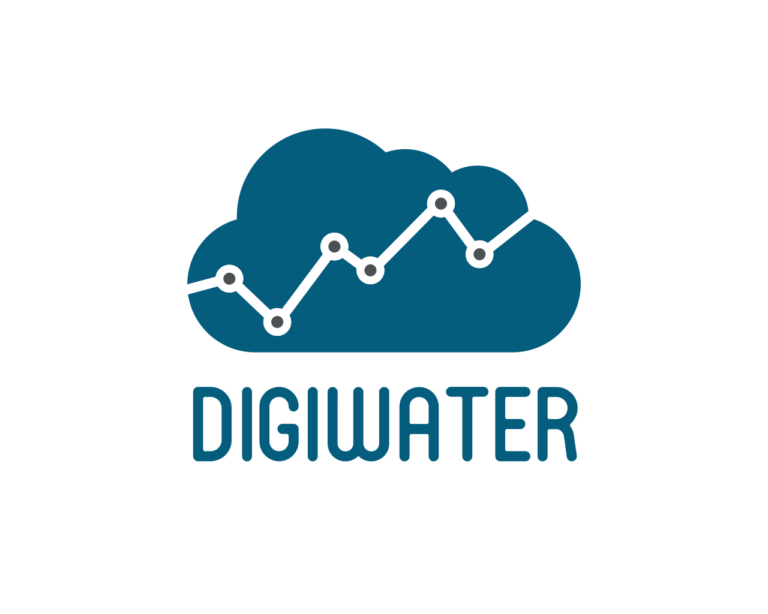

Digitalization of Water industry by Innovative Graduate Water Education
Cooperation for innovation and the exchange of good practices (2021-2023)
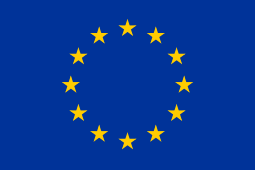
Co-funded by the Erasmus+ Programme of the European Union
Enhance digital innovations in curricula during education as a basic method for later implementation and application in business like industry, administration, consultancy
Establish smart specialization for digital water through the upgrade of curricula in partner universities with participation from industry
Improve the orientation of academia towards societal and market needs through internationalization of universities, Digital Water Living Lab and Innovation Camps
T2.1.1 Analysis of partners’ assets
T2.1.3 Digital Water curriculum design workshop
T2.1.4 Design and planning of syllabi
T2.2.1 Design of slides for physical course and e-learning
– Cyber Security in IoT
Lecture – Practical assignment
– Cyber Security in critical water infrastructure
Lecture – Practical assignment
– Data Assesment Exercises
Lecture – Practical assignment
– Data Safety and Standardization
Lecture – Practical assignment
– Future Trends in Big Data
Lecture – Practical assignment
– Future Trends in IoT
Lecture – Practical assignment
– Instrumentation and SCADA
Lecture – Practical assignment
– Introduction to Big Data
Lecture – Practical assignment
– Introduction to IoT
Lecture – Practical assignment
– Sensors in IoT
Lecture – Practical assignment
– Standards and good practices
– Visualization of Data
Lecture – Practical assignment
T2.2.2 Development of practical assignments
T2.2.3 Harmonisation of content
T2.2.4 Platform Architecture Specification and Design
T2.2.5 Platform Development
T2.3.2 Trainings at partner universities and companies
T2.3.3 Open education sessions
T2.3.4 Testing by students and practitioners at intensive courses
T2.3.5 Revision of content
T6.1 Dissemination & Exploitation Plan
T6.2 Project website
T6.3 Project promo-materials
Banner – Buisness card – Pen – Roll-Up
T6.4 Social media marketing
T6.5 Publications
EWA_NL – EWA_YB – EWA_Pages – WL_NL
T6.6 Exploitation roundtables and/or board meetings
T7.1 Overall project coordination
T7.2 Project Steering Committee (PSC)
T7.3 Day-to-day coordination of the project
T7.4 Project communications
T7.5 Project progress meetings and staff travels
T7.6 Student mobility
T7.7 Financial management
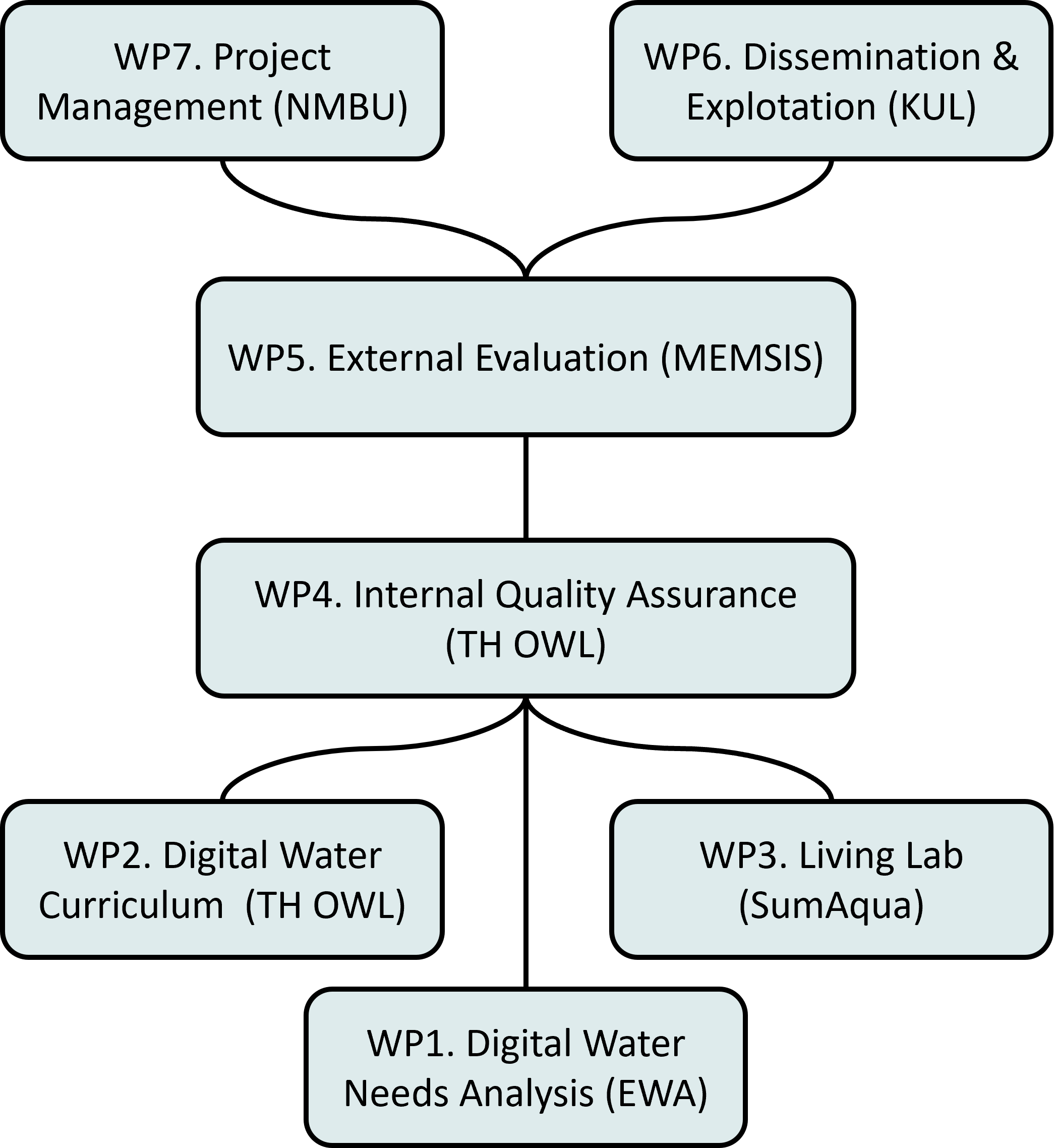
The focus of the 3-day Istanbul innovation camp, hosted by ITU – MEMTEK Research Center and MEMSIS was on the management of natural and man-made catastrophes in the water sector using digital concepts. This is particularly relevant given the recent earthquakes in Turkey, aswell as the global increase in cybersecurity attacks.
On the 15th March, we discussed the interim report, the outputs of the previous camp, and the development of the work packages during the project meeting that kicked off the day. After that, ITU Vice-President Prof. Lutfiye Durak-Ata hosted Project staff members for lunch.
The opening speech of camp was delivered by Assist. Prof. Mehmet Emin Pasaoglu (ITU-MEMTEK) on behalf of Prof. Ismail Koyuncu. In addition to giving introductory remarks and serving as the chair of the brainstorming session, Assoc. Prof. Selda Murat Hocaoglu, of the TUBITAK MAM, also participated.
Enver Ozdemir, a professor of the Informatics Institute at ITU, Adnan Baykal, the CEO&Co-founder of CyberWA, Inc. (USA), Prof. Harsha Ratnaweera (NMBU – Norwegian University of Life Sciences (project coordinator)), and Assoc. Prof. Ismail Dabanli, of the department of civil engineering at ITU, offered in-depth lectures on camp topics. Dr. Vincent Wolfs, director of SumAqua, presented 5 prototypes that were created from an earlier camp.
Assoc. Prof. Zakhar Maletskyi (NMBU) discussed the process and results to be expected from an innovation camp. The brainstorming session organized as a World Café, a crucial component of the camp, was then guided by him using GroupMap. Prof. Pierre Berube, of the department of civil engineering at UBC-CA, attended as an observer at the camp and as chair at the “Identification/early warning system” table. The co-chairs were Laurentiu Luca (SmarTech Automation), and Prof. Vahid Vatanpour (Kharazmi University & ITU). The “cyber-attacks” table was led by Dr. Vincent Wolfs, with Veronica Jascanu (SmarTech Automation), and Assoc. Prof. Kubra Ulucan-Altuntas (ITU) serving as co-chairs. Dr. Selda Murat Hocaoglu is the chair of the third opinion table on “response options”, while the co-chairs are project partners Dr. Katharina Pilar von Pilchau (TH-OWL) and Dr. Abhilash Nair (DOSCON AS) did it.
Sevde Korkut, the Ph.D. researcher at ITU-MEMTEK then gave a quick explanation utilizing Innovation Canvas Model. The joint dinner was organized at Baltalimani Social Facilities with all participants.
In the second day, we have four short lectures on digitalization of water sector. Dr. Abhilash Nair (DOSCON AS) explained the digital tools in the water sector while Emel Tufekci (Istanbul Water and Sewerage Administration-ISKI) focused on applications in Turkey of the same topic. Then, Dr. Sebnem Koyunluoglu Aynur and Dr. Cihangir Aydöner gave a short lecture together about one of case studies of SMART4ENV Horizon Europe Project, regarding the assessment of soil organic carbon and moisture content using remote sensing. Dr. Katharina Pilar von Pilchau and Alexandra Schäfer from TH-OWL discussed a co-creative method for new solutions in water management using lego.
We used a drone to take a group photo and a video in front of the Hezarfen Ahmed Celebi statue –historical symbol of innovation- on the ITU campus. The DIGIWATER team took a technical excursion to the ISKI Agva Advanced Biological Wastewater Treatment Plant, which contains digital monitoring equipment for tanks housing membrane bioreactors and activated sludge.
After stakeholder presentations, students first came up with solutions to cybersecurity issues in brainstorming sessions. Then, using an innovation canvas model, the students went on to further develop and organize their ideas. The challenge groups were supported by a number of ITU-MEMTEK students who were present.
Then students first generated ideas to tackle cybersecurity problems in brainstorming sessions, which were preceded by stakeholder presentations. After this, students further detailed and structured their ideas based on an Innovation Canvas Model (ICM). Several ITU-MEMTEK students attended and supported the challenge groups.
When the camp was lasting, we took Bosphorus Tour with glorious view of coastal side of Istanbul. To conclude the camp, students pitched their ideas in front of an international jury. The team made up of students from Norway and Germany placed first among the teams examined by the jury at the last stage of the camp. We congratulate all participating students for their outstanding efforts. Using the jury’s feedback, students will further elaborate their ideas by creating prototypes in the months after the innovation camp. The prototyping cycle is concluded by demo-casing the novel prototypes in end-user environments.
Participating students:
Bahriye Eryıldız and Oğuz Orhun Teber – ITU, Turkey
Laurens Breugelmans and Joke de Meester – KU Leuven, Belgium
Eivind Henriksen Zahl, Sverre Våset Weel, and Tawfik Asaad Al Alaya – NMBU, Norway
Alexandra Schäfer and Marvin Meyer – THOWL, Germany
Anghel Mihaela Claudia, Podaru Mihai, and Lăbuș Andrei-Petrișor – UGAL, Romania
Andreas Chrysanthou – UCY, Cyprus
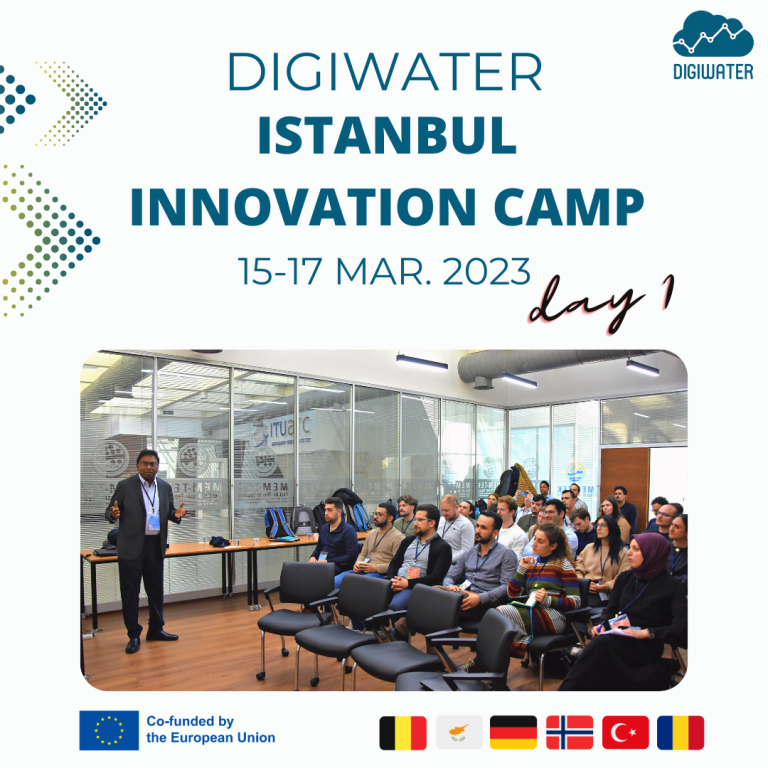

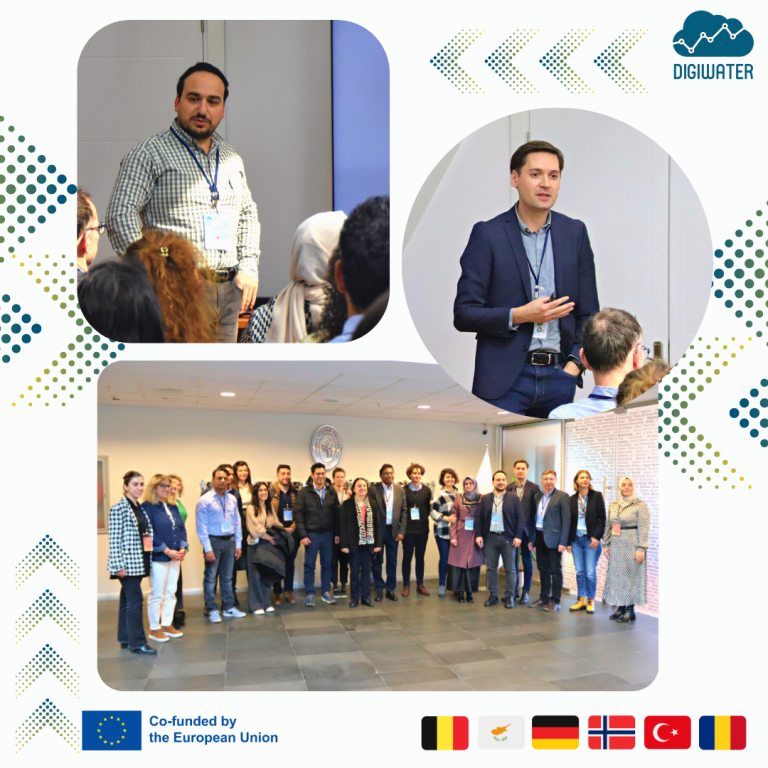





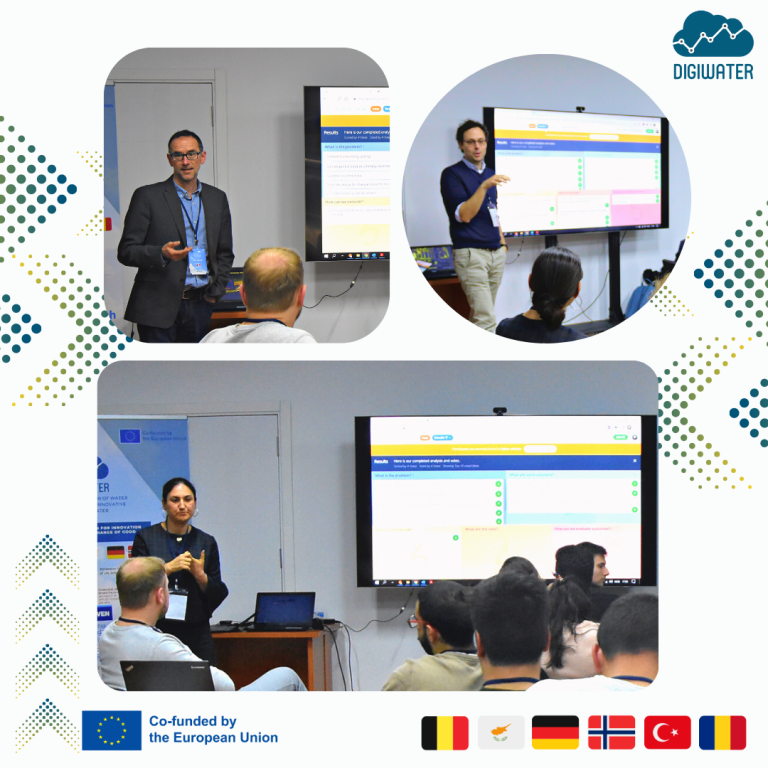
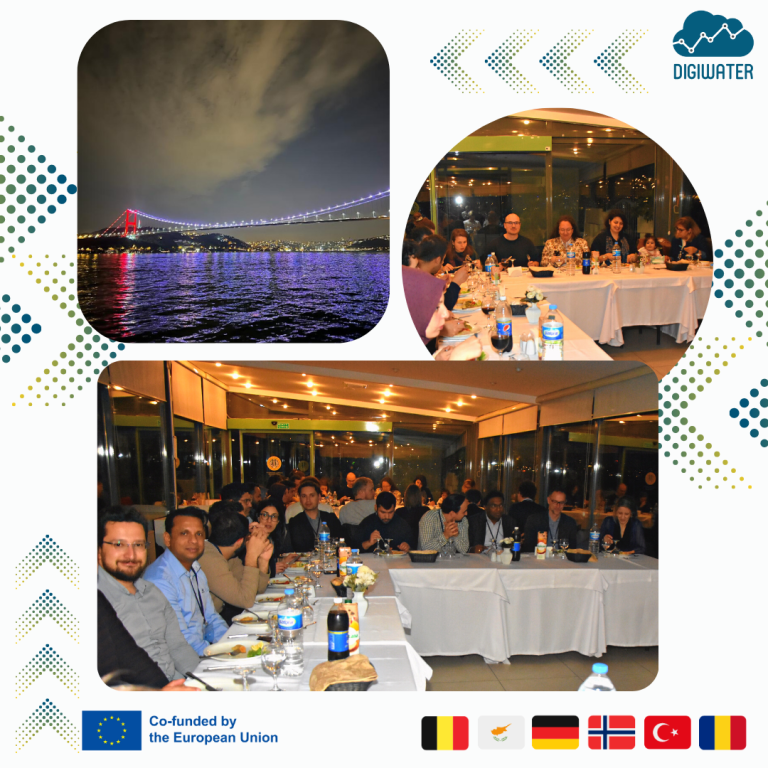
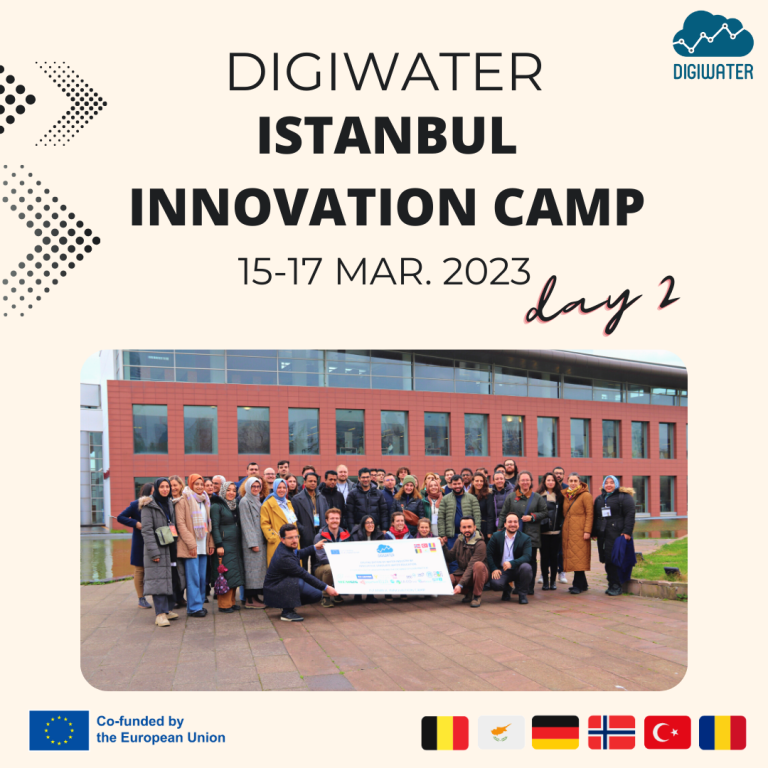

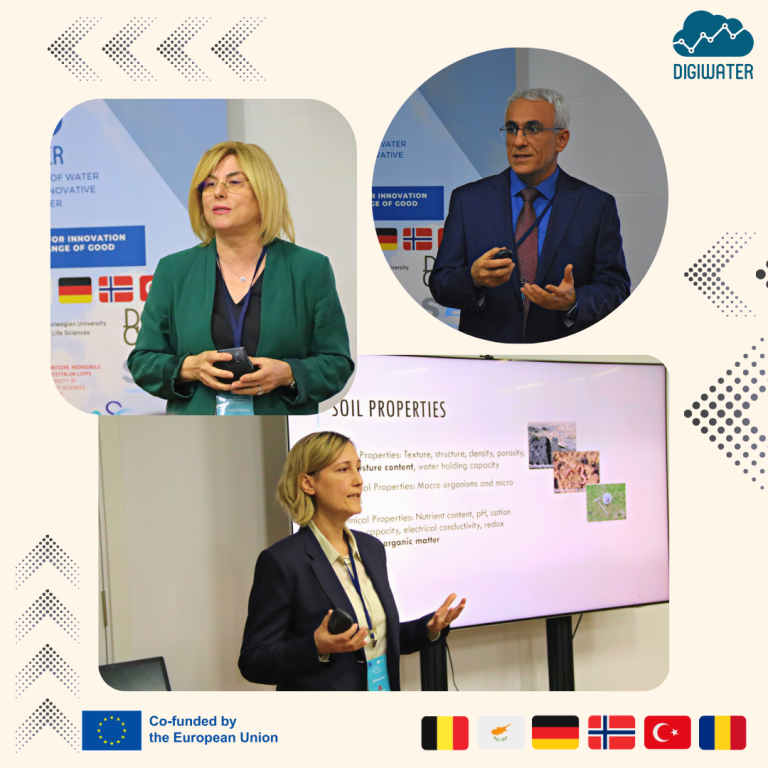
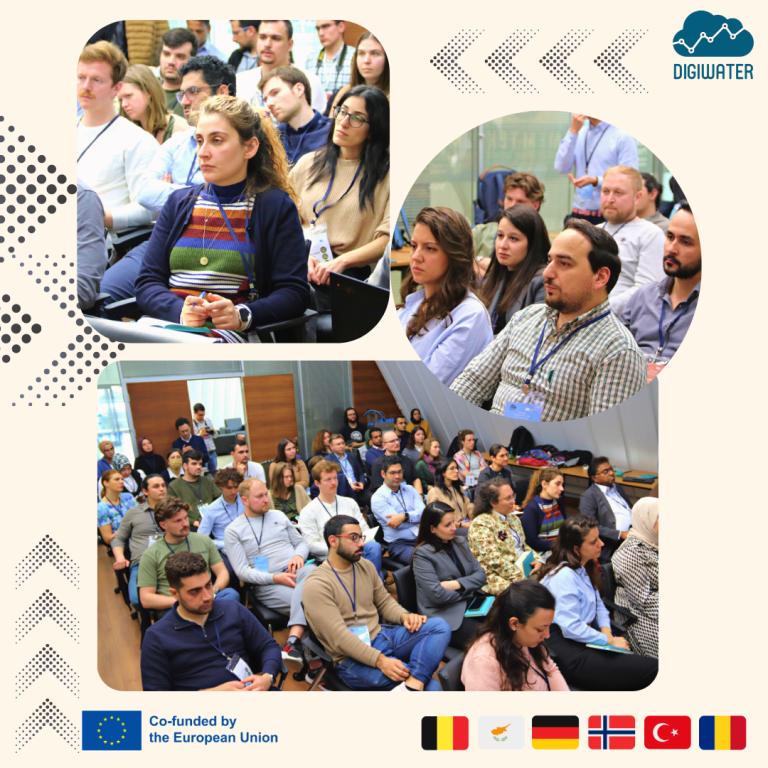
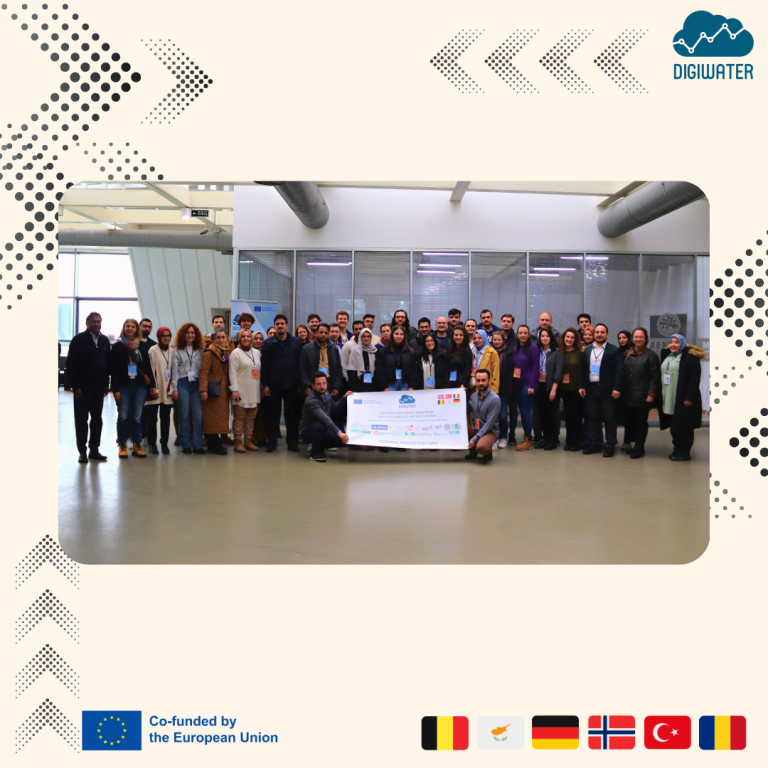
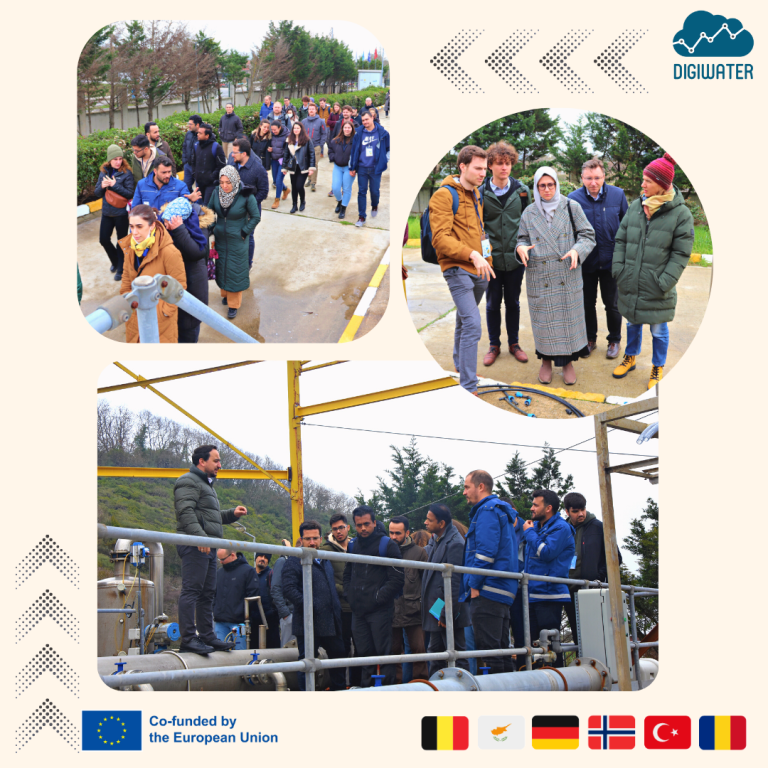
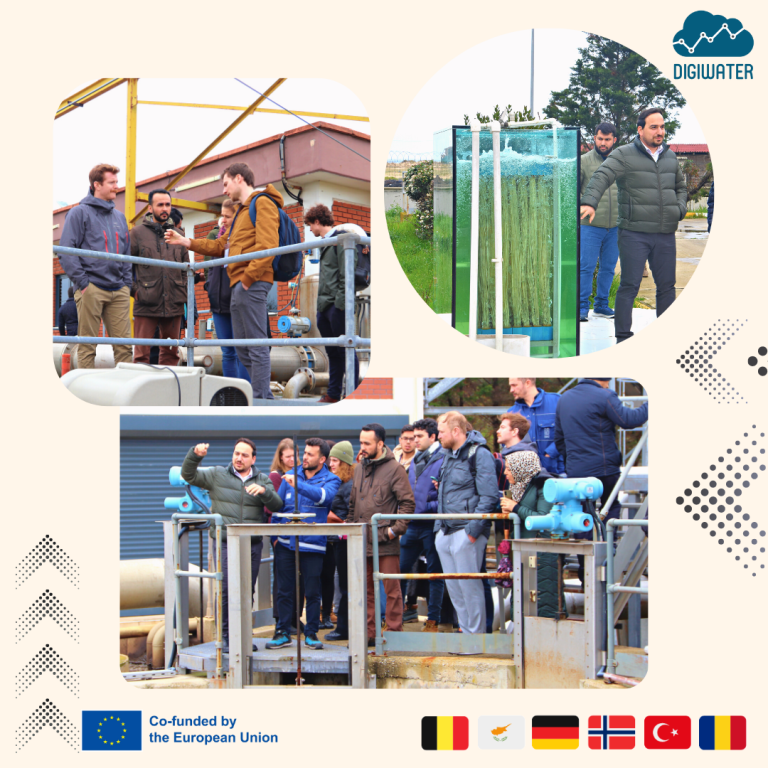
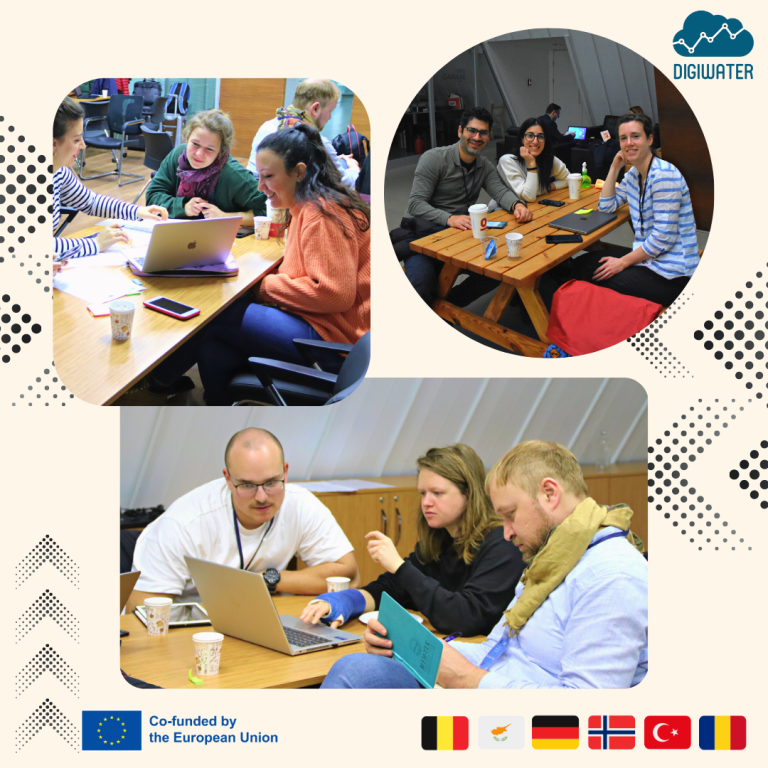
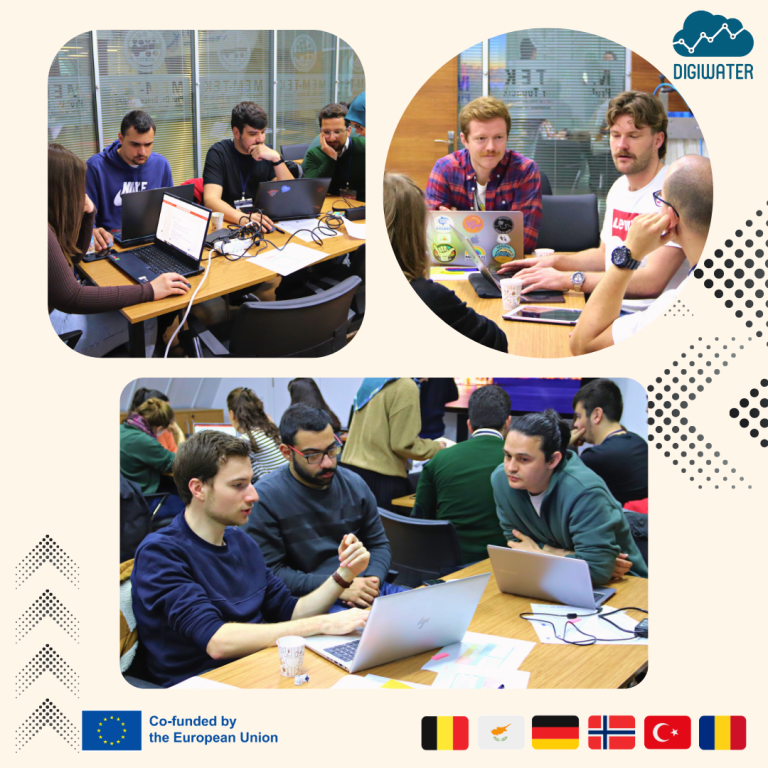
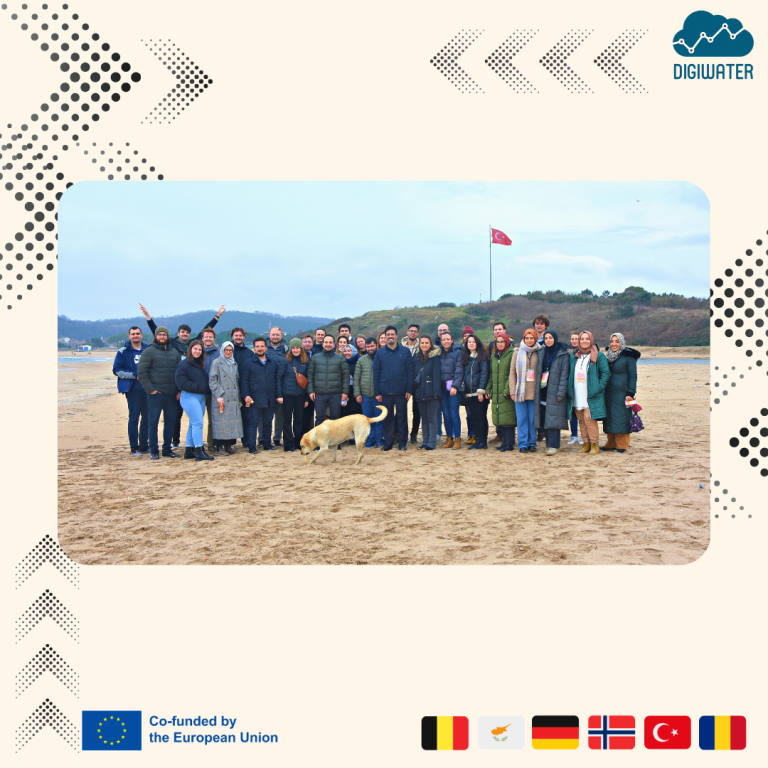
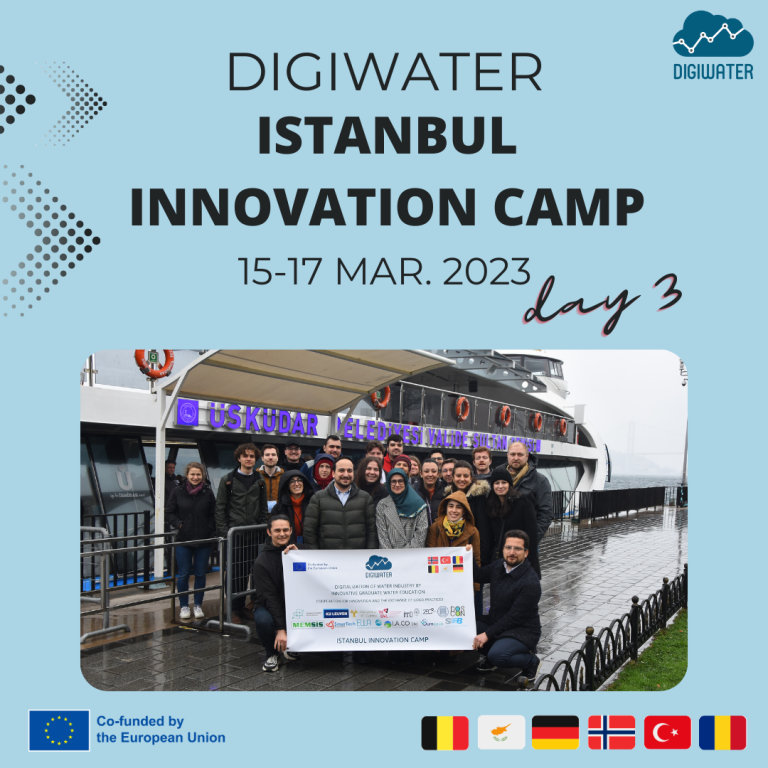

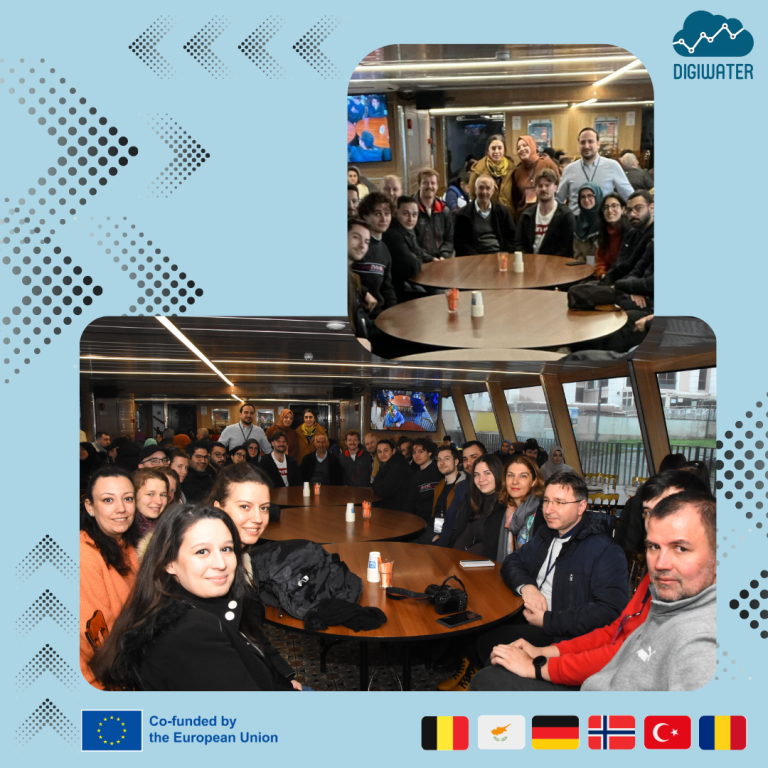
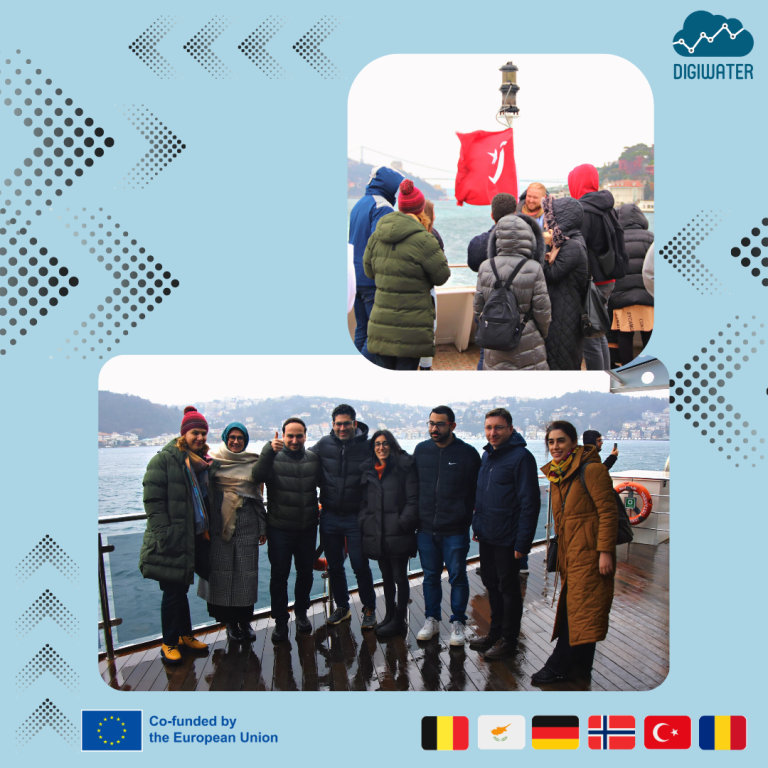
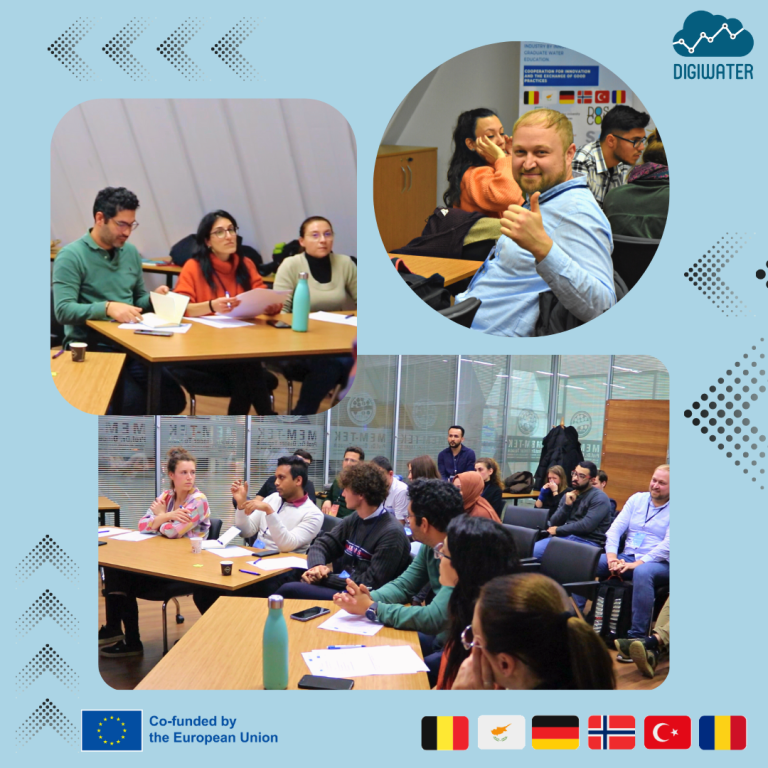
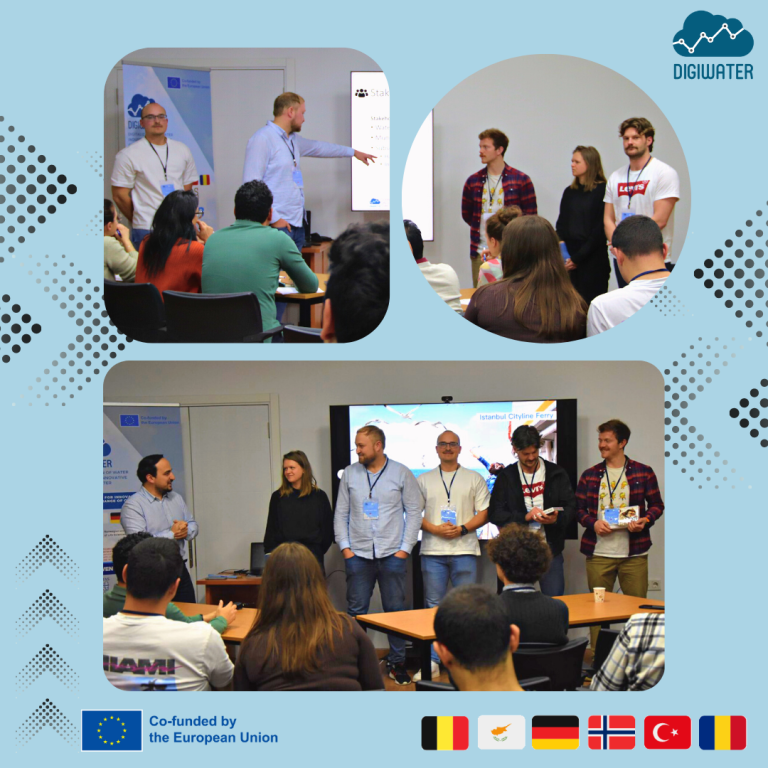
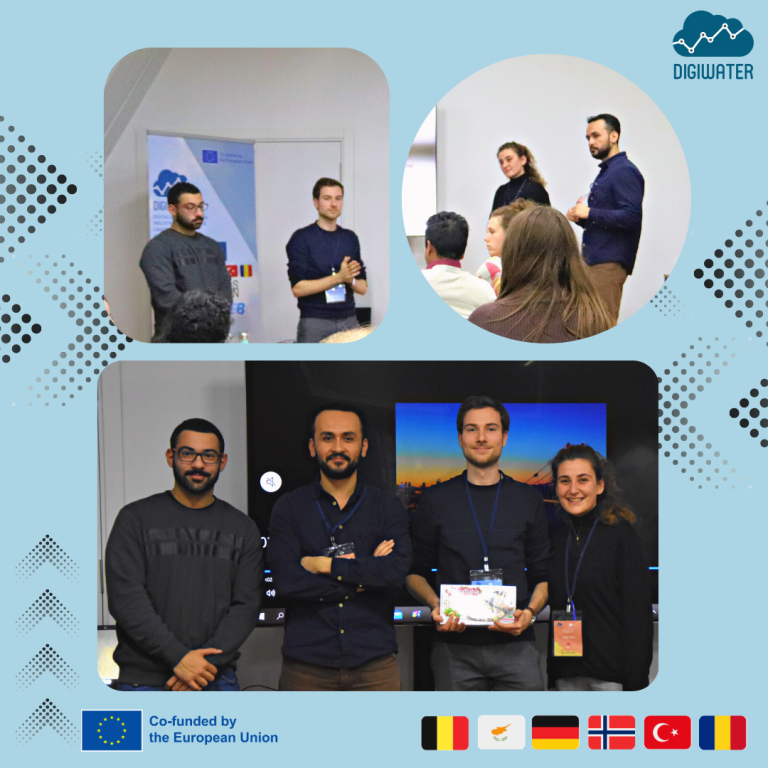
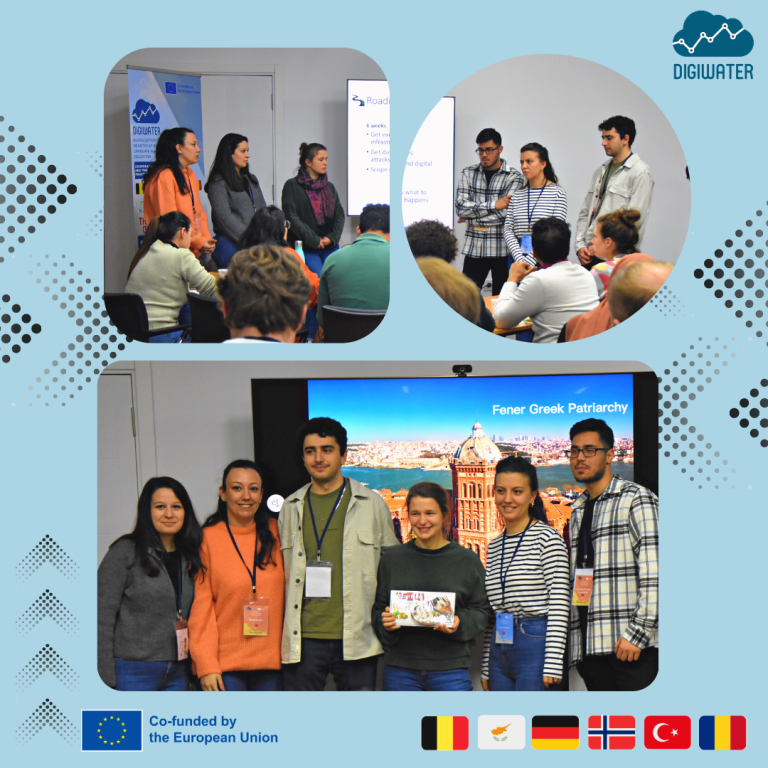
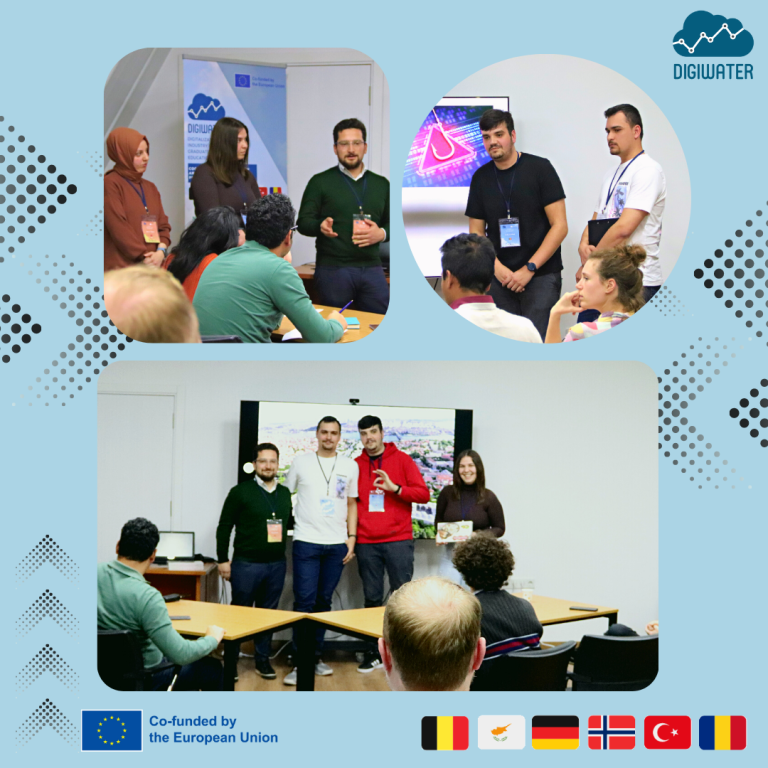
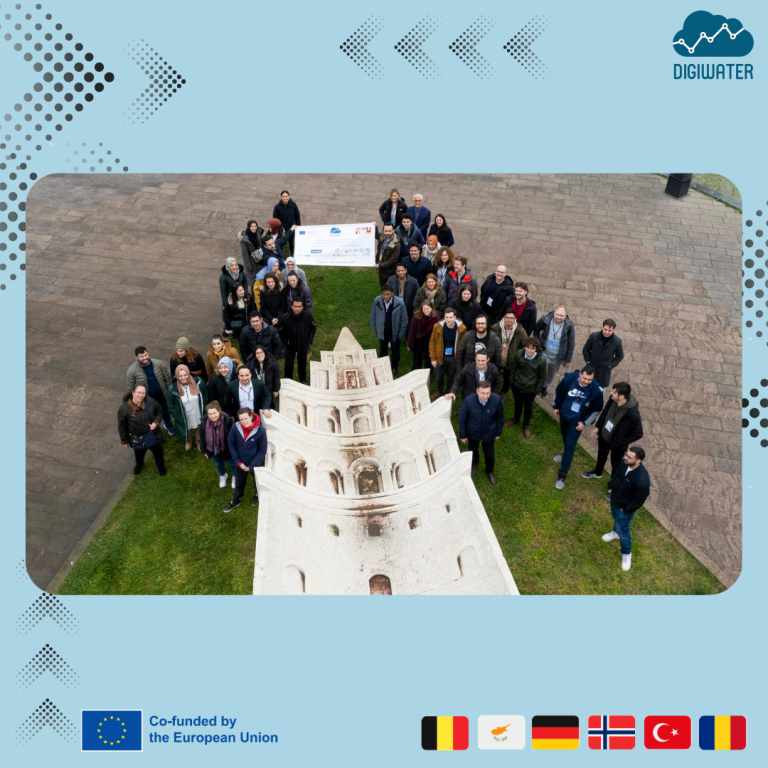
After the Digital Water Curriculum Design workshop, we organized an innovation camp for the first demo in Leuven, Belgium between 4-7 October. After registration and meeting on the first day of the camp, Prof. Patrick Willems, Full professor in Urban and River Hydrology and Hydraulics KU Leuven, gave the keynote lecture “Water challenges in Flanders and Europe”. Then Postdoctoral Engineer and General Manager of Sumaqua Dr. ir. Vincent Wolfs created a vision for the digitalization of the water sector for students with his presentation titled “Drought forecasting with AI models”. In the brainstorming session, all participants were divided into three groups. We tried to produce innovative approaches to this crucial question: “How can digital technology tackle floods, water scarcity and poor water quality?”
The second day of the camp, which was very active, started at 9:00 with a presentation titled “Introduction and demonstration of a virtual tour” by Katharina Pilar von Pilchau, M. Engineer in Department of Environmental Engineering and Applied Science, THOWL. Followed by 4 short courses, two online and two in-person, were held as an introduction to IoT, Big Data and Cyber Security. Daan Buekenhout, Research Associate in KUL and Prof. Harsha Ratnaweera, our project coordinator and Professor in Water and Wastewater Technology at the Faculty of Sciences and Technology NMBU, made in-person presentations. Both presentations were made online. The students were divided into 6 groups of 2-3 people. They started using the innovation canvas model for group work. We closed the day with an excursion to a brewery.
Participating students:
Bahriye Eryıldız and Oğuz Orhun Teber from ITU, Turkey
Laurens Breugelmans and Danitza Salazar Cortez from KU Leuven, Belgium
Charlotte Marie Trovaag and Rasmus Falkeid Hagland from NMBU, Norway
Alexandra Schäfer and Marvin Meyer from THOWL, Germany
Podaru Mihai and Lăbuș Andrei-Petrișor from UGAL, Romania
Andrea Naziri and Theoni Mina from UCY, Cyprus
On the third day of the camp, Prof. Marian Barbu, Automatic Control in UGAL, gave a course on “Test Platform WWTP”. Then the students continued a group work. After delicious lunch sandwiches, we had an inter-group consultation. At this meeting, students received feedback from the coordinators about their presentations. Then we had a staff meeting and reviewed all work packages. The date of the second innovation camp to be held in Istanbul, Turkey has been clarified. After the program, we had a very enjoyable dinner with the staff and students under the sponsorship of SumAqua.
On the last day of the camp, students presented their innovative approaches. Experts from our project and KU Leuven took part in the jury. Jury members rated the presentations. At the end of the scoring, two teams were selected as the best presentation. Daan Buekenhout and Kato Schoeters presented a small gift to these successful two teams. We congratulate all participating students for their outstanding efforts. This camp was organized by Daan Buekenhout and Prof. Patrick Willems from KU Leuven and Dr. Ir. Vincent Wolfs and Kato Schoeters from SumAqua. Thank you for this fruitful organization.
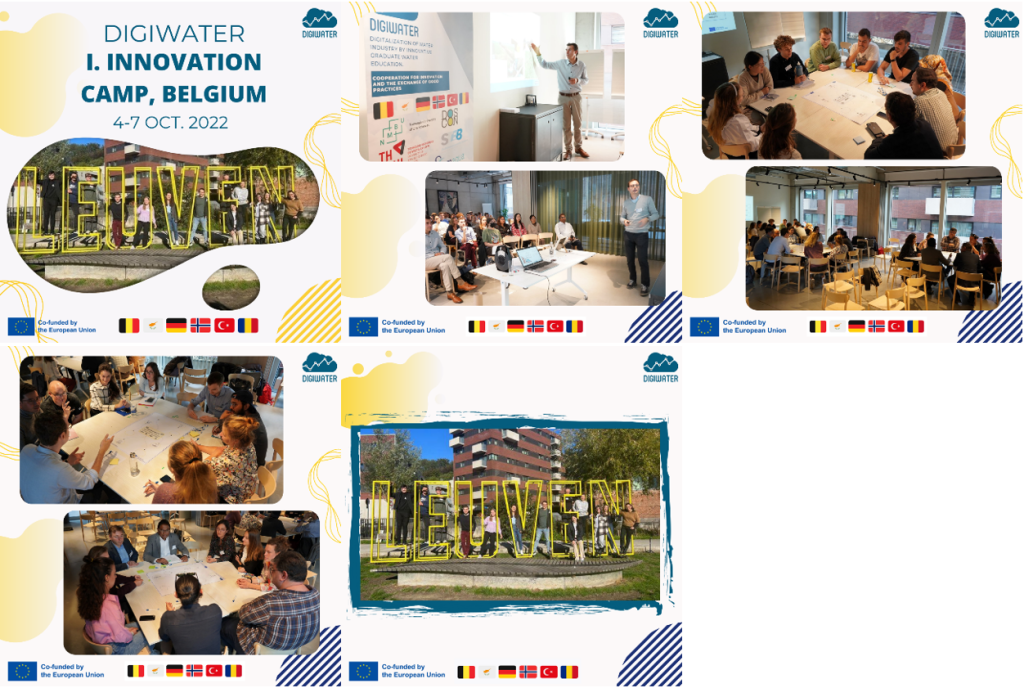
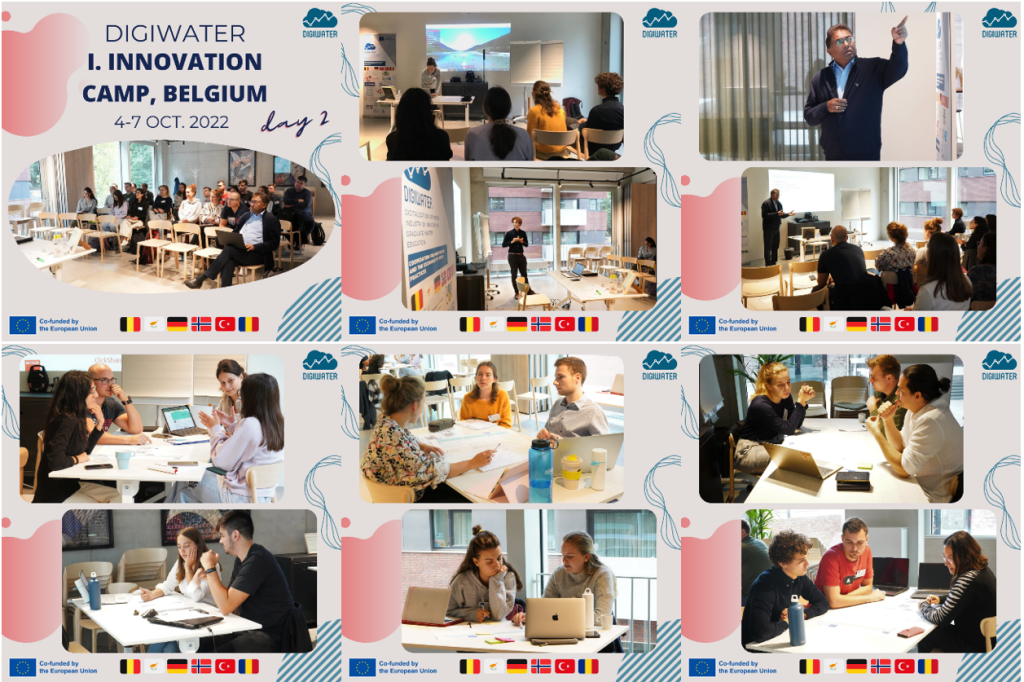
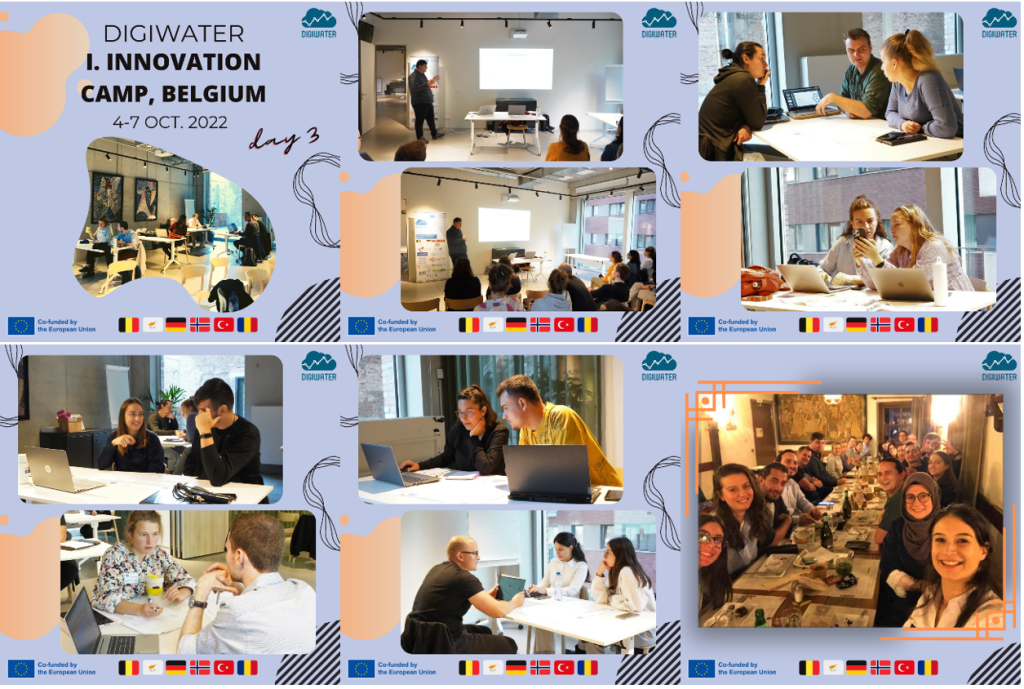
Phone: +47 6723 1619
E-mail: waternorway@nmbu.no

